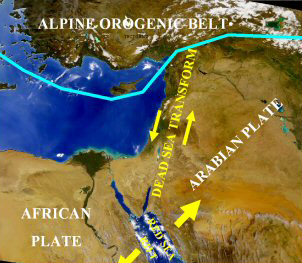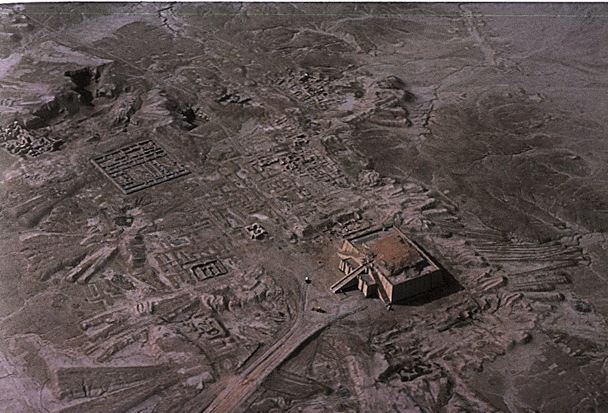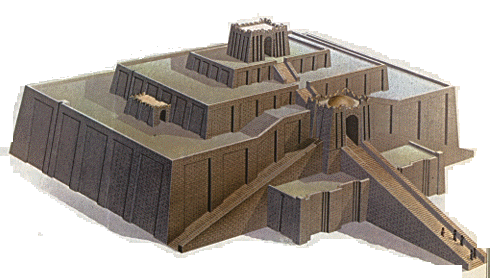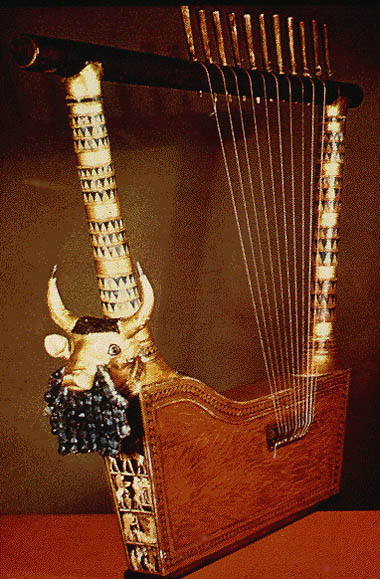ABRAHAM
simple English for deaf sign
Abraham – God chose Abraham to begin new people group (the Hebrews/Jews). Later God used Hebrew people to show Himself to the world. God used Hebrew people to show three: 1) who God; 2) character of God; 3) God’s plan for world. About 2000 years later, Jesus Christ born from Hebrew mother. In Genesis, many people, many stories. But one person Genesis talks about most: Abraham. Abraham very special man. Story about Abraham begins Genesis 11:27, continues until Genesis 25.
His ancestors: Bible shows Abraham’s ancestors, each person, back, back to Adam, the first man.
History notes: Bible shows Abraham born about 3360 years after God created Adam. Abraham died 175 years old, about 2150 years before Messiah born. Meaning: Abraham born more than 2000 years before Christ. During Abraham’s life, important happenings in Middle East. Genesis 14 tells about big war – kings from cities in Jordan plain fought against group from north-east. Genesis 18-19 tells about destruction Sodom and Gomorrah and other cities near. Destruction caused by violent volcanic explosion, caused land south Dead Sea to sink far down. Large earthquake fault there. Secular (meaning: ‘not Bible’) history agrees about war and volcano explosion causing land to sink down.

The Dead Sea is near the word ‘sea’ on the picture. This picture shows the earthquake fault between the up arrow and the down arrow. The Dead Sea and the Jordan Rift are part of the fault line. Sodom and Gomorrah were destroyed by large earthquake and lots burning sulfur and volcanic explosion in area.
[Note first: The Ebla Tablets are ancient tablets found in Middle East which talk about same names in Bible. Same places, sometimes same people. They were written during Abraham’s life, but written in different place. So they tell us the Bible is telling truth about what Genesis says about Abraham.]
In 1978, famous archaeologist Professor D.N. Freedman of University of Michigan gave lecture “Archaeology and Biblical Religion.” He talked about Ebla Tablets. He said he believes Ebla tablets show Bible true. He believes Ebla Tablets written same time Abraham lived. Archaeology is Freedman’s professional work. He is skilled. We need to respect and consider his words.

This is one of the tablets from Ebla
Abraham’s name first Abram, later Abraham. His father was Terah. Abram was born in Ur city, in area belonging to Chaldees. Before leave Ur, Abram married his beautiful half-sister, Sarai.
What about Ur? In 1929, famous archaeologist Sir Charles Leonard Woolley led group to Middle East and they began to uncover (dig up) Ur of the Chaldees. Many streets. Many open places. Huge tower (ziggurat) built with black, red, and blue blocks. They could see where trees grew around it. The tower was to worship Moon-god, Nannar. Tower built by King Ur-Nammu. Tower surrounded by half-circle five very large temples. Largest temple dedicated to Moon-goddess, Ningal (wife of Nannar). Her temple was rectangle, 100 yards long and 60 yards wide [note: long as football field and more wide]. Her temple had very thick walls. Nannar and Ningal had daughter, Ishtar (also named Asherah). She was goddess for sex and babies. No one surprised about clay tablets in Ur talking about temple prostitution and other very immoral actions.

This is a picture of the ruins of Ur. The ziggurat is the large building.

Maybe how ziggurat when Abraham living in Ur.
The clay tablets Woolley and his group found also said temple was trade center. Ur had large library full clay tablets. Before people found tablets, they thought that special mathematics about triangles was invented 1500 years after Ur. They were wrong. Clay tablets from Ur showed they knew very complicated mathematics and mathematics helped them build Ur. Clay tablets also for history, all people’s ancestors, temple songs, trade, and diplomatic (political) documents. Library full information on clay tablets. Now we know the people in Ur were well-educated. They could read and write. They had music and they knew complicated mathematics. We learn from tablets that all boys in Ur go to school. Groups digging to find Ur also found large school house for education of boys.
![[Nippur Tablet]](clip_image006.jpg)
This tablet is from Ur and tells about the Flood – the same Flood we read about in Genesis

This is a man at Berkeley studying some of the clay tablets from Ur.
Woolley and his group (and other groups digging later) found Ur houses. The houses were comfortable. Luxury. Many had two stories [levels – upstairs and downstairs]. Some houses had fourteen rooms. Some houses had large clay pipes for water drain and sewage (same as getting rid of toilet water). The first (lower) floor of house was built with burnt (baked) bricks (note: they are strongest kind). Second story only mud-bricks (dried in sun). Walls covered with plaster, very neat and nice. People painted the walls white. How floor plan? Go in front door through entrance hall. Then go into beautiful paved courtyard. Other rooms around courtyard. Upstairs was bathroom and hallway leading to bedrooms and guest rooms. High wall or railing around upstairs hall to stop people falling into courtyard. People in Ur seemed to be rich with many beautiful things and precious stones and jewels and gold. The very rich people had musical instruments – lyres with 11 strings.

Here is drawing of basic house plan.

This is a ten-stringed lyre, but you can see how beautiful and expensive!
Abram's background: Abram was born in Ur. He grew up in Ur. He was educated in Ur. Woolley, an archaeologist, wrote we must change much early belief about Abram. He grew up in sophisticated city. He was citizen of great city. He learned traditions of old and organized civilization. Hebrews 11 says Abram walked away from Ur and Ur’s idols. He did not know where he will go. He trusted God. He knew that God Himself builds eternal city. God’s city is home of righteousness. Ur very, very different! Bible tells us Abram free to go back to Ur. No. Abram chose God, and God’s city. Abram’s choice shows us his early character and his values [what is important to him].
When Abram young, his obedience: Acts 7:2 tells us God appeared to Abram when he was still living in Ur. God told Abram he must leave country, leave his people, and follow where God leads. In Joshua 24:2, we see Abram’s father, Terah, worshiped idols, maybe moon god. Interesting, Genesis 11:31 says Terah took Abram and family out of Ur and moved to Haran. They all stayed in Haran until Terah died. Abram received vision from God, but Terah moved family. Abram was obedient to father. We think Abram told his father about message from God and his father, Terah, believed him. Perhaps Terah tried to obey Abram’s God? We can see Abram obeys God and his own father. He honored and respected Terah. Abram a picture of Jesus, later, when young Jesus honored and respected his earth parents, no matter they sin.
Abram’s care of his family: When family moved from Ur to Haran, hard work. Whole family and all their valuable things must go 900 kilometers (about 560 miles) to north-west. Terah was becoming old. Abram stayed in Haran until his father died. He did not take Sarai or other people in family away. He stayed with his father until Terah died. After Terah died (see Acts 7:4), Abram became family leader. Then he moved family and everything they owned to Canaan, in the south.
Abram generous: In Canaan, Abram and his nephew, Lot, had so many sheep and goats they could not stay in same area. So they had to separate from each other to find enough room for flocks. Abram family leader. No matter. He told Lot to take choice and go to part of land he wanted. Lot picked beautiful green pastures near Sodom. Abram never argued. Abram content because now he no longer responsible for Lot and Lot had good area for himself. We know what happened to Sodom later! God gives us lesson from Lot – do not judge truth from what something looks like.
Abram trusted God’s Promises: Beginning Genesis 12, we learn God makes special promise – covenant – with Abram. BUT Abram MUST obey God’s command to leave Ur, leave family, leave relatives. Abram obeyed and God never broke promise. God repeated covenant promise to Abram’s son, Isaac and to Isaac’s son, Jacob. God’s covenant promise to Abram has seven parts: 1) Abram (his descendants) will become great nation; 2) God will bless Abram; 3) God will make Abram’s name great; 4) Abram [and his descendants] would become a blessing; 5) God will bless people who bless Abram [and his descendants]; 6) God will curse people who curse Abram [and his descendants]; 7) Through Abram’s descendants every group on earth will be blessed. Abram felt secure to move from Ur because of God’s promise. When Abram and Lot separated, Abram knew he fully obeyed God and left both home and family to follow God. Abram knew God will bless him.
[Note from Barry: God still fulfils promise to Abram. Jews all over world. They have had many smart people who have helped others. Jesus came from Jewish people. The Jews have influenced the whole world. God blesses people who help and support Jews.]
Abram’s common sense: Abram knew his family would own Canaan. God promised that. But when famine came to Canaan, Abram moved his family to Egypt for short time so they could have enough to eat.
History note: Pepi II was pharaoh in Egypt when Abram there. He was old; he had been Pharaoh for 94 years when he died and Abram was in Egypt near end of Pepi’s reign. This is the time of Old Kingdom in Egypt. Egypt trading with Byblos and Sodom and Gomorrah. Interesting: same time Sodom and Gomorrah destroyed, Byblos also destroyed because of very big earthquake. In Byblos ruins we find things with Pepi II’s name on them.
Abram not perfect – he sinned: God uses sinners to fulfil His will. God does not need perfect men. Abram lied about his wife, Sarai, when they were in Egypt [before he and Lot separated]. He said Sarai his sister [she was his half-sister, but also his wife]. Why? Abram was afraid because Sarai very beautiful and Abram thought maybe Egyptians would kill him so they can have Sarai. Pharaoh saw Sarai’s beauty and took her to his house. Pharaoh was nice to Abram because of Sarai. But Pharaoh’s house began many problems. We learn from this story. We learn God will not leave us if we do wrong. Abram did wrong because of fear. Often we are the same. God did not leave Abram. God will not leave us.
Abram’s courage: When Abram back in Canaan, he and Lot separated. Then war happened. All cities around Lot’s area fought against group of cities from north-east. Lot was captured, became prisoner. Abram took 318 trained men [not very many!], and attacked at night. Surprised enemy. Enemy very many men. Abram few. But night surprise attacked successful. Abram rescued Lot. Abram also rescued all prisoners from Sodom. Rescued their families. Rescued everything enemy soldiers took from Sodom. Abram and 318 rescued whole city and everything they owned.
Abram’s humility [humble]: After Abram rescued Lot and people from Sodom, they all went home. During trip home, Abram met Melchizedek, king of Salem [Salem was probably almost where Jerusalem is now]. Melchizedek priest of same God Abram knew – God Most High, the Living God. Abram honors Melchizedek, gave him 1/10 of everything. [Note: the Melchizedek priesthood maybe came down from Adam. This is ancient Jewish tradition.]
Abram’s faith steady: When Sodom king tried to give Abram reward, Abram refused. Why? Abram had faith in God. Abram did not want to accept gift from ungodly pagan king.
Abram’s belief in God: God promised Abram a son. Many years Abram and Sarai, no children. No matter. Abram believed God. In Genesis 12:2 God promised Abram will become great nation [meaning he will have many descendants and they will become great nation]. In Genesis 15:16, God tells Abram he will have so many descendants no one can count them. They will be same as dust because so many descendants! In Genesis 17:2 God tells Abram again. there will be many descendants. Many people think Genesis 15:4-5 is also promise about many descendants, but Paul tell us differently. (see next section) In Genesis 15:12-16, God prophecy to Abram about his many descendant. They will got a strange country. They will be treated badly for 400 years. After, they will come back to where Abram is now and they will have this land. God said not yet land his. Why? Because Amorites not yet full sin. Important lesson here: God gives each person, each culture, time to show which way decide to go. No one stopped before final decision. Then God will judge.
Did Abram understand Gospel message? In Genesis 15:5, the Lord takes Abram outside and tells him look at stars. Then God says to Abram, in Hebrew, to ‘caphar’ (or ‘sapar’) the stars. King James says word means ‘tell’ and New International says word means ‘count.’ Word ‘caphar’ means more. It means to tell meaning, or tell story about. Not imagine story, but tell what story he sees. God tells Abram his ‘seed’ will be same as star story tells. Many people think this, again, means many descendants. But no, that is not right meaning. The word for ‘seed’ is not ‘seeds’, but ‘seed,’ meaning ‘one seed.’ Paul explains in Galatians 3:16 about God and Abram in Genesis 15. Paul explains that God was talking about Messiah – God promises Abram that the Messiah will be his descendant. Then we read in Genesis 15:6, “Abram believed God” and God said Abram’s belief was same as righteousness. This agrees with Paul’s words in Romans 4:20-25. Paul says when people believe God and about Jesus, God says they are righteous.
In Galatians 3:8, Paul says God told Gospel to Abram. Then Paul reminds about God’s promise to Abram, “All nations will be blessed through you.” This promise is special. People always know it means Messiah. What did Abram see in stars? Remember, Adam named animals, but God named stars. Star names have meaning. Barry has studied many years about star names. He knows they tell about coming Messiah. Several years ago, we both helped write article about this here: http://www.ldolphin.org/zodiac/
Abram submitted to his wife: Bible says clearly husband and wife should love each other and submit to each other. Both think about the other. Many years, Sarai no children. She decided to ‘help’ God. She told Abram to have sex with Hagar, Sarai’s maid. Abram submitted to wife’s direction. Hagar born Ishmael. Ishmael born because of human wisdom. Not God’s time. Not God’s wisdom. Happen? Since then, Hagar’s descendants (descendants of human wisdom) war with Isaac’s descendants (Isaac from God’s promise, not human ideas). God’s lesson clear: we must trust Him. He will keep His promises best way – His time, His way.
Abram trusted God to keep him safe: God commanded Abram to be circumcised. All men with Abram must be circumcised same day. Circumcision sign of covenant with God. Meaning: all men will be crippled with pain for one or two days. Abram has no human defence if someone attack! He must trust God. Obey God no matter. Same day, God changes Abram’s name to Abraham. Abram means ‘high father’ and Abraham means ‘father of many.’ God changed Sarai’s name, too. Sarai means ‘my princess.’ Sarah means ‘princess of many.’ Again, God tells Abraham he will have a son. Now God clearly tells Abraham the son will be from Sarah. God tells Abraham his son’s name will be Isaac. Isaac means ‘he laughs.’ Name will always remind Abraham and Sarah they laughed about God’s promise for a son. Why they laugh? They were so old – too old to have a son. Abraham 99 years old. Sarah 89. They did not think Sarah can have baby….
Abraham’s hospitality [friendliness, help to others]: In Genesis 18, three strange visitors appear. Abraham takes care of them. He orders fresh bread and fresh killed meat for them. Important to understand this was normal to help strangers who travelled. [Maybe they were from another king and if no one kind to them, their king be angry, make war]. If Abraham not nice to visitors, Abraham would be very rude. Insult if not feed visitors. But always a little danger, too. Maybe visitors mean hurt? In Hebrews 13:2, writer reminds us to take care of strangers – maybe they are angels! Abraham’s visitors also tell Abraham he and Sarah will have son. Sarah laughs to herself, but she denies laugh when strangers say ‘you laughed.’
Abraham bold: When did Abraham understand visitors’ identity? We don’t know. Hebrews 13:2 seems to say beginning, Abraham not know. Maybe Abraham started to know when they told him he would have son. Maybe Abraham did not really know until one ‘stranger’ told him Sodom and Gomorrah would be destroyed. Abraham knew then. Abraham intercedes [speaks to help] for Sodom. Now Abraham knows he is talking to God. Abraham says, “Won’t the earth’s Judge do right?” Seems Abraham tried to bargain with God [back and forth discussion try to get other change his mind]. Abraham pleads God not destroy city if 50 righteous men there. Then 45. Then 40. They continue discussion. What if 10 righteous men? God says if ten righteous men, no destroy city. God’s lesson? Few righteous men will have big influence over many people.
History note: 2 Peter 2:7 tells us Lot righteous man. But people in Sodom rejected Lot’s words. People in Sodom accuse Lot of acting same as judge. They want revenge on him. God is just and fair. He will not condemn someone who could not make choice. Sodom and Gomorrah and other cities near had much time. Then time finished. God judged them very fast. Remember, Lot chose area near Sodom because so beautiful and green pastures (Genesis 13:10). Then God judged Sodom and area near it. Now whole area is dead wasteland. No more pastures, no more green.
Abraham still sinned: Genesis 20 tells us Abraham again lies because fear. He is afraid someone will kill him because Sarah so beautiful. Again Abraham says Sarah his sister, not his wife. Remember, Sarah truly his half sister! But wife is more important. So when Abraham refused to admit she his wife, it was lie. Interesting Sarah so beautiful when 90 years old! We have changed lots! Remember Genesis 5 and 11 tell us people used to live many hundreds years. They did not look old for long, long time. Important to remember Sarah not yet conceive Isaac. Abraham almost destroyed God’s plan! God had to rescue Sarah from other men. God used a dream to warn other men not touch Sarah. We must remember all men sin. No matter close to God. Only Jesus Christ perfect. God will always help us.
Abraham father to Isaac and becomes confused: Isaac born caused great joy. But then, later, Hagar and Ishmael pushed out (banished). Sarah very angry because Hagar and Ishmael tease Isaac. Abraham very upset. What to do? Hagar and Ishmael leave. Ishmael almost dies from thirst, but God saves him. God’s lesson: God cares for everyone. God has plan for every person born. Some people are special for God’s plan, yes, but God loves everyone. God promised Ishmael would have 12 sons and they would be princes and become strong nation (Arabs today).
Abraham smart in politics: In Genesis 21, Abraham makes treaty [agreement] with other leaders. Abraham shows great wisdom when working with other leaders. After, Abraham prays to the Lord and plants trees so people will always remember God is faithful. Abraham shows everyone God gives him wisdom. Abraham’s wisdom not his own – it comes from God.
Abraham’s faith: Remember when God told Abraham to ‘tell’ the stars in Genesis 15? Abraham believed God about Messiah would come from Abraham. In Galatians 3:6-18, we see Abraham knew about Messiah. Messiah would die for world’s sins and then live again. We think maybe Abraham thought Isaac was Messiah. Why? Look at story when God told Abraham to sacrifice Isaac. Abraham started to obey immediately. Abraham almost killed Isaac. God stopped him. But look at something Abraham says to the servants when he and Isaac leave them to go up the mountain. He told his servants “Stay here with the donkey while the boy and I go over there. WE will worship and then WE will come back to you.” Both times, Abraham says “WE”. WE will come back to you. Abraham believed if he obeyed God, killed Isaac, then Isaac will live again. Abraham had great faith! When God stopped Abraham kill Isaac, God provided the ram for sacrifice. So Abraham gave the place special name: “Jehovah-jireh” – meaning: The Lord will provide.
Abraham’s love for Sarah: When Sarah died, Abraham not just sad. Abraham wept [cried] (Genesis 23:2). Abraham bought cave at Machpelah to put Sarah’s body. Abraham never owned any land in place God promised his descendants would own. But Abraham bought this cave and field for Sarah. Later Abraham’s body put in cave. Isaac and Rebekah also buried there. Jacob and Leah buried in same cave. Jews and Christians and Moslems all respect cave. Cave reminds us how much Abraham loved Sarah.
Abraham’s diplomacy [careful way talk with other leaders]: Abraham respected customs of people who owned cave and field. When Ephron the Hittite said how much cave worth, Abraham never argue. He paid full price. Abraham was powerful and Ephron offered the cave and land free. Abraham refused and paid full price. This caused Hittites to remain Abraham’s friend long time.
Abraham’s last years: After Sarah died, Abraham married again. Six more sons and maybe daughters. The Lord continued bless Abraham because Abraham trusted God and Abraham faithful. In Genesis 25:7-8, we read Abraham lived 175 years, then he died.
Abraham was man sinner same as all of us. But he obeyed God. He fully trusted God. In New Testament, Abraham is ‘father of the faithful.’ New Testament also says Abraham was ‘God’s friend.’ Real meaning in Hebrew not “God’s friend” but instead “lover of God”. God appeared to Abraham several times. Abraham always responded with trust and obedience. Because Abraham trusted, obeyed, God can use him to show God’s character and God’s plan to world.
REFERENCES:
E. W. Bullinger, “The Witness of the Stars”, Kregel Publications, 1970.
W. Keller, “The Bible As History”, Hodder & Stoughton, 1969.
M. M. Mandelkehr, “An Integrated Model Part 1 – The Archaeological Evidence”, SIS
Review Vol. V, pp.77-95, 1983.
W. E. Rast, R. T. Schaub, “Have Sodom & Gomorrah Been Found?”, Biblical
Archaeology Review, Sept./Oct., 1980, pp. 27-36.
F. Rolleston, “Mazzaroth”, Rivingtons, 1875.
J. A. Seiss, “The Gospel in the Stars”, Kregel Publications, 1972.
C. A. Wilson, “Ebla Tablets: secrets of a forgotten city”, Master Books, 1979.
C. A. Wilson, “Visual Highlights of the Bible, Vol. 1”, Pacific Christian Ministries 1993.
|



![[Nippur Tablet]](clip_image006.jpg)


